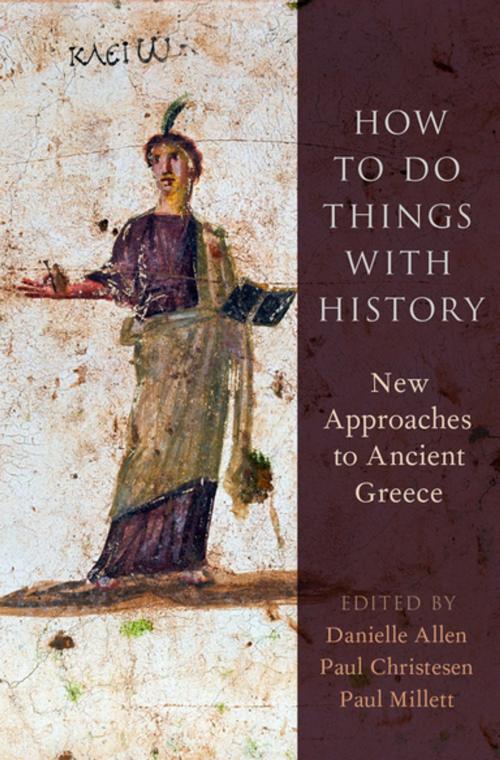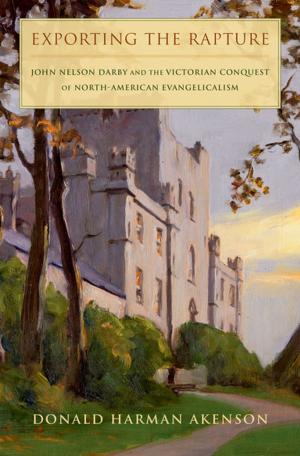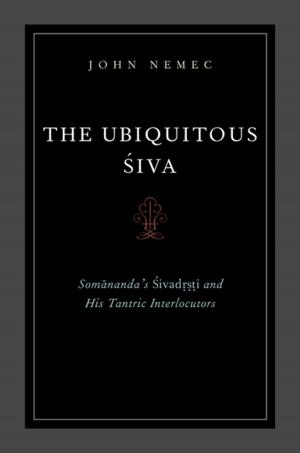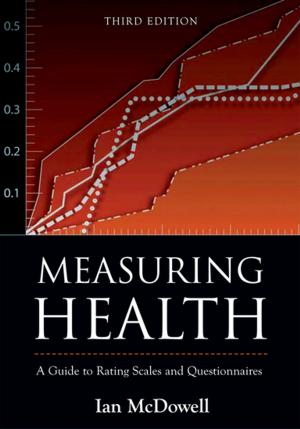How to Do Things with History
New Approaches to Ancient Greece
Nonfiction, History, Ancient History, Greece| Author: | ISBN: | 9780190888961 | |
| Publisher: | Oxford University Press | Publication: | July 30, 2018 |
| Imprint: | Oxford University Press | Language: | English |
| Author: | |
| ISBN: | 9780190888961 |
| Publisher: | Oxford University Press |
| Publication: | July 30, 2018 |
| Imprint: | Oxford University Press |
| Language: | English |
How to Do Things with History is a collection of essays that explores current and future approaches to the study of ancient Greek cultural history. Rather than focus directly on methodology, the essays in this volume demonstrate how some of the most productive and significant methodologies for studying ancient Greece can be employed to illuminate a range of different kinds of subject matter. These essays, which bring together the work of some of the most talented scholars in the field, are based upon papers delivered at a conference held at Cambridge University in September of 2014 in honor of Paul Cartledge's retirement from the post of A. G. Leventis Professor of Ancient Greek Culture. For the better part of four decades, Paul Cartledge has spearheaded intellectual developments in the field of Greek culture in both scholarly and public contexts. His work has combined insightful historical accounts of particular places, periods, and thinkers with a willingness to explore comparative approaches and a keen focus on methodology. Cartledge has throughout his career emphasized the analysis of practice - the study not, for instance, of the history of thought but of thinking in action and through action. The assembled essays trace the broad horizons charted by Cartledge's work: from studies of political thinking to accounts of legal and cultural practices to politically astute approaches to historiography. The contributors to this volume all take the parameters and contours of Cartledge's work, which has profoundly influenced an entire generation of scholars, as starting points for their own historical and historiographical explorations. Those parameters and contours provide a common thread that runs through and connects all of the essays while also offering sufficient freedom for individual contributors to demonstrate an array of rich and varied approaches to the study of the past.
How to Do Things with History is a collection of essays that explores current and future approaches to the study of ancient Greek cultural history. Rather than focus directly on methodology, the essays in this volume demonstrate how some of the most productive and significant methodologies for studying ancient Greece can be employed to illuminate a range of different kinds of subject matter. These essays, which bring together the work of some of the most talented scholars in the field, are based upon papers delivered at a conference held at Cambridge University in September of 2014 in honor of Paul Cartledge's retirement from the post of A. G. Leventis Professor of Ancient Greek Culture. For the better part of four decades, Paul Cartledge has spearheaded intellectual developments in the field of Greek culture in both scholarly and public contexts. His work has combined insightful historical accounts of particular places, periods, and thinkers with a willingness to explore comparative approaches and a keen focus on methodology. Cartledge has throughout his career emphasized the analysis of practice - the study not, for instance, of the history of thought but of thinking in action and through action. The assembled essays trace the broad horizons charted by Cartledge's work: from studies of political thinking to accounts of legal and cultural practices to politically astute approaches to historiography. The contributors to this volume all take the parameters and contours of Cartledge's work, which has profoundly influenced an entire generation of scholars, as starting points for their own historical and historiographical explorations. Those parameters and contours provide a common thread that runs through and connects all of the essays while also offering sufficient freedom for individual contributors to demonstrate an array of rich and varied approaches to the study of the past.















